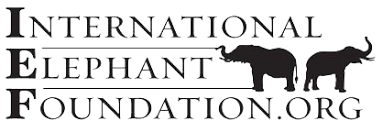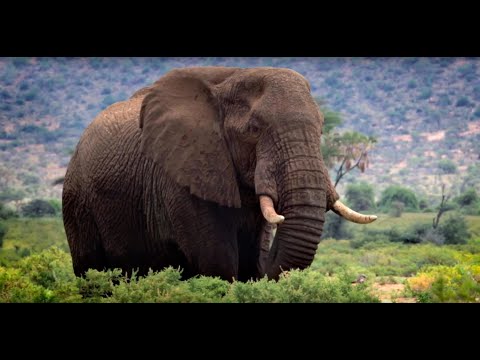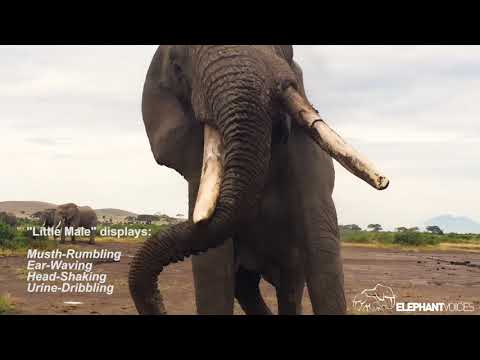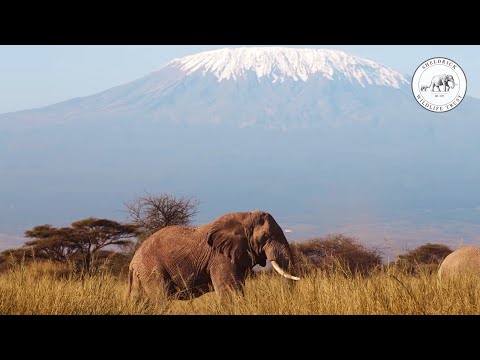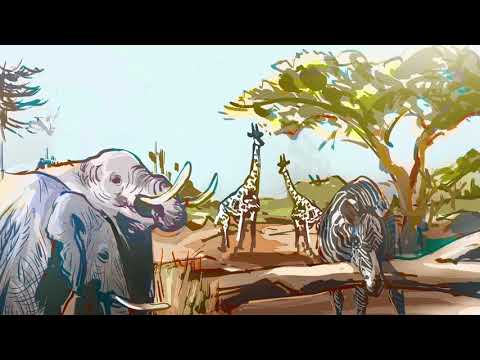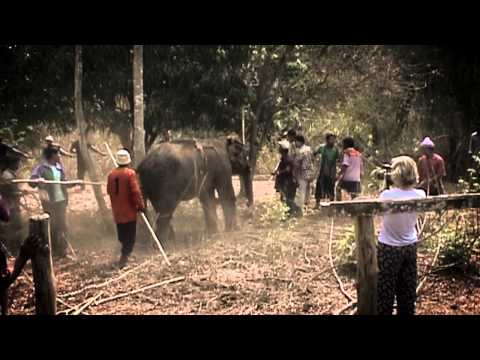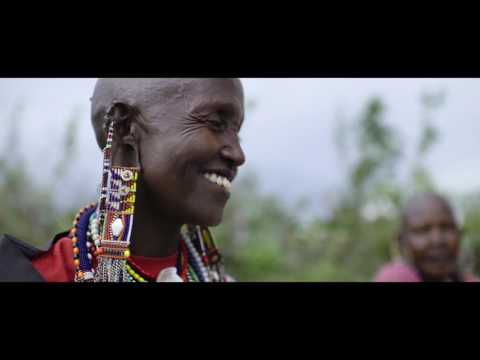10 Best Charities for Protecting Elephants (Complete 2024 List)
Impactful Ninja is reader-supported. When you buy through links on our site, we may earn an affiliate commission.
Learn more
Learn more
.
Hey fellow impactful ninja ? You may have noticed that Impactful Ninja is all about providing helpful information to make a positive impact on the world and society. And that we love to link back to where we found all the information for each of our posts. Most of these links are informational-based for you to check out their primary sources with one click. But some of these links are so-called "affiliate links" to products that we recommend. First and foremost, because we believe that they add value to you. For example, when we wrote a post about the environmental impact of long showers, we came across an EPA recommendation to use WaterSense showerheads. So we linked to where you can find them. Or, for many of our posts, we also link to our favorite books on that topic so that you can get a much more holistic overview than one single blog post could provide. And when there is an affiliate program for these products, we sign up for it. For example, as Amazon Associates, we earn from qualifying purchases. First, and most importantly, we still only recommend products that we believe add value for you. When you buy something through one of our affiliate links, we may earn a small commission - but at no additional costs to you. And when you buy something through a link that is not an affiliate link, we won’t receive any commission but we’ll still be happy to have helped you. When we find products that we believe add value to you and the seller has an affiliate program, we sign up for it. When you buy something through one of our affiliate links, we may earn a small commission (at no extra costs to you). And at this point in time, all money is reinvested in sharing the most helpful content with you. This includes all operating costs for running this site and the content creation itself. You may have noticed by the way Impactful Ninja is operated that money is not the driving factor behind it. It is a passion project of mine and I love to share helpful information with you to make a positive impact on the world and society. However, it's a project in that I invest a lot of time and also quite some money. Eventually, my dream is to one day turn this passion project into my full-time job and provide even more helpful information. But that's still a long time to go. Stay impactful,Affiliate Disclosure
Why do we add these product links?
What do these affiliate links mean for you?
What do these affiliate links mean for us?
What does this mean for me personally?
![]()
Elephants are a cornerstone species in our environment. But unfortunately, their numbers have drastically decreased globally. In fact, all elephant species around the world are now either endangered or critically endangered. Fortunately, charities are working hard to protect these beautiful animals. So we had to ask: Which are the best charities for helping elephants?
The best charities for helping elephants are the International Elephant Foundation, Save the Elephants, and Elephant Voices. Charities such as the World Wildlife Fund For Nature Kenya and the David Sheldrick Wildlife Trust work to end the harmful poaching trade.
Whether you want to save elephant habitats, end poaching and the demand for ivory, or even secure a baby elephant’s future by adopting them, there is a charity for you. Keep reading to learn more about what the best charities for international aid are all about, how they work, and what your best way would be to make a contribution.
Here’s What All the Best Charities for Helping Elephants Have in Common
The charities we have chosen work closely with grassroots organizations, governments, and other conservation parties to ensure the safety of elephants across the world.
As much as collaboration is necessary for elephant conservation, these charities also base their efforts and activities on researching one of the most intelligent species out there. These charities ensure their efforts also cater to the behavioral needs of elephants.
While some of these charities run programs based across the world from Kenya to India to the United States, they are united in their goal of helping elephants.
Yet, they all have clear goals and initiatives that work towards securing a brighter future for elephants.
These Are the 10 Best Charities for Helping Elephants in 2024
Below are our favorite charities for helping elephants (you can click on their link to jump to their section in this article directly):
Best Charities For Helping Elephants
(At the end of this article, we’ll also share our six-step approach on how you can select the best charity to support.)
International Elephant Foundation: Refining Elephant-Human Relations Through Research
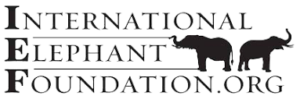
🔎
Their transparency & ratings:
The International Elephant Foundation has a 4-star rating from Charity Navigator and a Platinum Seal of Transparency from GuideStar.
“Create a sustainable future where elephants thrive by linking people and elephants for their mutual long-term benefit.”
International Elephant Foundation
⚒️
What they do:
The International Elephant Foundation invests in formulating resources based on research that supports elephant conservation, education, and management. For example, through their Guinea Forest Elephants project, the charity supports the monitoring of Ziama’s vulnerable Forest Elephant population by using satellite tracking collars, education campaigns, and by strengthening the capacity to prosecute wildlife offenses. They also offer children’s activities and teacher resources to inspire the next generation of conservationists.
🚀
What they’ve achieved:
Since their inception, the International Elephant Foundation has provided approximately $8 million to elephant research and conservation programs. For example, in 2021, they protected 51,408 elephants in Asia and Africa, and conserved 87,810 miles2 of vital habitat. In the same year, they also ran 227 education programs on elephant conservation and destroyed 7,809 snares. Furthermore, they have produced one of the most recognized documents on elephant management, ‘The 2004 Elephant Husbandry Guide.’
✨
Ways to contribute:
You can donate directly to the International Elephant Foundation through their website. You can also support the charity by symbolically adopting an elephant or through workplace giving.
Save the Elephants: Stopping The Killing Of Elephants And Trafficking Of Their Ivory
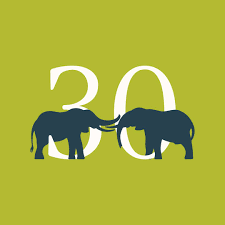
🔎
Their transparency & ratings:
According to their financial report, Save The Elephants spent 90% of their income on conservation projects in the field.
“Secure a future for elephants and to sustain the beauty and ecological integrity of the places they live.”
Save The Elephants
⚒️
What they do:
Save The Elephants research and monitor African elephants through their GPS tracking system. They also establish protection for wild elephant populations by funding like-minded partners and grassroots organizations committed to anti-poaching through their Elephant Crisis Fund. Moreover, the charity provides information on how humans and elephants can coexist fully by raising awareness of the species importance to the African ecosystem.
🚀
What they’ve achieved:
Since their founding, Save The Elephants has distributed over $31 million to hundreds of organizations across 40 countries to improve elephant conservation worldwide. Furthermore, they have engaged more than 200,000 children in 27 schools with their elephant conservation education programs. They have also identified 9 vital wildlife corridors through their tracking devices.
✨
Ways to contribute:
You can donate directly to Save The Elephants through their website. You can also support the charity by spreading the word or by applying for one of their internship opportunities.
Elephant Voices: Promoting Ethical Care For Elephants Through Research
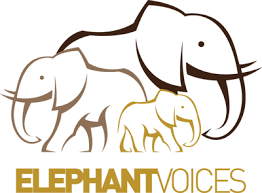
🔎
Their transparency & ratings:
Elephant Voices has a 3-star rating from Charity Navigator and a Platinum Seal of Transparency from GuideStar.
“To inspire wonder in the intelligence, complexity and voices of elephants, and to secure a kinder future for them.”
Elephant Voices
⚒️
What they do:
Elephant Voices promotes the protection and kinder treatment of elephants worldwide through conservation, advocacy, research, and education. For example, through their 10-year research program into the social behavior of elephants in Amboseli, Kenya, the charity is formulating tailored conservation plans across Africa. They also give lectures to school kids to inspire the next generation of conservationists. In addition, they partner with the Global Sanctuary for Elephants to offer sanctuary to suffering elephants in South America.
🚀
What they’ve achieved:
Since their founding, Elephant Voices has increased the presence of elephants from 120 to 800 in the Mozambique Gorongosa National Park through their tailored conservation programs. Moreover, Elephant Voices are key witnesses in appealed legal cases advocating for elephants to be recognized as legal persons to curb the solitary confinement they experience.
✨
Ways to contribute:
You can donate directly to Elephant Voices through their website. You can also support the charity by purchasing their merchandise to raise awareness and funds for elephant conservation.
David Sheldrick Wildlife Trust: Rescuing and Rehabilitating Orphaned Infant Elephants

🔎
Their transparency & ratings:
The David Sheldrick Wildlife Trust has a 4-star rating from Charity Navigator and a Platinum Seal of Transparency from GuideStar.
“Embrace all measures that complement the conservation, preservation and protection of wildlife and habitats.”
David Sheldrick Wildlife Trust
⚒️
What they do:
The David Sheldrick Wildlife Trust rescues and rehabilitates orphaned elephants and rhinos in Kenya through their world-renowned orphan project. These animals are then reintegrated back into protected wilderness. They also run 23 anti-poaching units in collaboration with the Kenya Wildlife Service to intercept illegal poaching efforts and deter the illegal ivory trade. Furthermore, they erect and maintain fence lines to secure wildlife areas and prevent human-wildlife conflict.
🚀
What they’ve achieved:
Since their founding, the David Sheldrick Wildlife Trust has successfully raised 316 elephant orphans, and through their mobile veterinary units, they have attended to the medical needs of 3,292 elephant cases. Moreover, they have installed 32 boreholes and 8 water bowsers across Kenya’s wilderness to provide water for vulnerable wildlife, including elephants. In 2022 alone, their anti-poaching teams patrolled 65,174 km of habitat, removed 12,582 snares, and seized 3,172 weapons.
✨
Ways to contribute:
You can donate directly to the David Sheldrick Wildlife Trust through their website. You can also support the charity by organizing a fundraiser or by symbolically adopting an orphaned elephant.
Elephants Alive: Every Elephant Counts

🔎
Their transparency & ratings:
According to their financial report, Elephants Alive spent 72% of their income on conservation projects, 18% on admin, and 10% on development.
“To ensure the survival of elephants and their habitats, and to promote the harmonious coexistence of elephants and people.”
Elephants Alive
⚒️
What they do:
Elephants Alive conduct scientific and behavioral research studies on elephants by following collared individuals across numerous South African National Parks and Transfrontier conservation areas. By tracking these animals, the charity can learn more about their social behaviors and guide them to safety where their movements link to protected areas. In addition, Elephants Alive works to reduce human-elephant conflict by protecting iconic tree species and vital farmland from excess damage caused by elephants. Furthermore, they educate local communities to show compassion for local wildlife and relocate vulnerable elephants back to protected reserves when needed.
🚀
What they’ve achieved:
Since their founding, Elephants Alive has established over 2 million location points across South Africa to monitor roughly 200 collared elephants. In 2021 alone, they collared 30 elephants, monitored and protected over 3000 trees for elephant impact, and conducted 3 helicopter deployments to herd elephants back into protected reserves.
✨
Ways to contribute:
You can donate directly to Elephants Alive through their website. If you are a resident of South Africa, you can also support their work by choosing Elephants Alive as the beneficiary for your Woolworths MySchool card.
The Nature Conservancy: Promising African Elephants A Safe and Healthy Habitat

🔎
Their transparency & ratings:
The Nature Conservancy has a 3-star rating from Charity Navigator and a Gold Seal of Transparency from GuideStar.
“Taking holistic approaches to save wild African Elephants.”
The Nature Conservancy
⚒️
What they do:
The Nature Conservancy collaborates with grassroots initiatives and government wildlife services to implement programs that secure healthy, safe habitats for African elephants. For example, they collaborate with Honeyguide, to establish a conflict toolkit that uses safe fireworks and chili powder to deter elephants from farms and reduce human-elephant conflict. Furthermore, through their water funds, they conserve vital freshwater sources for both wild animals and local communities across Africa. They also actively protect the Enduimet Wildlife Management Area, an important elephant corridor between Amboseli National Park and Kilimanjaro National Park from agricultural expansion and poachers.
🚀
What they’ve achieved:
Since their founding, the Nature Conservancy has protected over 3.6 million acres of communal grazing sites across Africa for vulnerable species, including African elephants. They have also trained 20,477 farmers in climate-smart agricultural practices and planted over 4 million new trees with an 86% first-year survival rate. In 2022 alone, the charity patrolled 1,250 miles2 of habitat in Zambia and cleared 145,000 acres of invasive plant species.
✨
Ways to contribute:
You can donate directly to the Nature Conservancy through their website. You can also support the charity by joining their #SaveElephants program or by volunteering.
The Elephant Sanctuary in Tennessee: Giving Elephants the Freedom They Deserve

🔎
Their transparency & ratings:
The Elephant Sanctuary in Tennessee has a 4-star rating from Charity Navigator and a Platinum Seal of Transparency from GuideStar.
“Provide captive elephants with individualized care and the opportunity to live out their lives in a safe haven.”
The Elephant Sanctuary in Tennessee
⚒️
What they do:
The Elephant Sanctuary in Tennessee provides a safe home and a herd for previously captive elephants, as well as individualized husbandry and veterinary care. Elephants that live on-site can also express natural behaviors and recover from complex behavioral issues from their time in captivity through the provision of enrichment and an expansive habitat of 3,060 acres. Furthermore, through distance learning courses and virtual field trips, the charity teaches local schools and community groups about the crises facing African and Asian elephants in the wild.
🚀
What they’ve achieved:
Since their founding, the Elephant Sanctuary in Tennessee has provided a safe haven for 29 African and Asian elephants. Their facilities include heated barns, spring-fed lakes, pastures, and woodlands. In 2021 alone, the charity reached 14,000 students worldwide through their online education programs and opened the Elephant Health Care Center with a newly fitted laboratory to increase onsite capabilities for diagnostics, training, and observation.
✨
Ways to contribute:
You can donate directly to the Elephant Sanctuary in Tennessee through their website. You can also support the charity by purchasing items from their online store or by joining their EleAmbassador volunteer program. Furthermore, you can watch live footage of the elephants at the sanctuary through their EleCam.
Elephant Aid International: Providing Education and Hand on Assistance to End The World Wide Suffering of Elephants
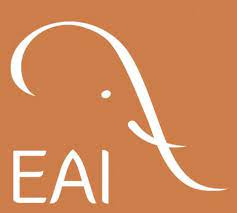
🔎
Their transparency & ratings:
Elephant Aid International has a Platinum seal of transparency from GuideStar.
“Making a better world, one elephant at a time.”
Elephant Aid International
⚒️
What they do:
Elephant Aid International collaborates with elephant trainers (called mahouts), like-minded nonprofits, tourist facilities, and elephant welfare groups to improve the treatment of captive elephants in Asia while raising awareness in North America. For example, they worked with Tiger Tops Elephant Camp in Nepal to build chain-free enclosures for their captive elephants. They also provide pedicures for captive-held elephants and educate elephant trainers in proper foot care to prevent infection and support overall health.
🚀
What they’ve achieved:
Since their founding, Elephant Aid International has created a revolutionary training method to improve the lives of captive elephants across Asia using positive reinforcement. For example, they published the Comprehensive Guide to Rehabilitating Captive-Held Elephants so they can successfully be integrated back into the wild. They also run the Elephant Refuge North America in Georgia, spanning 850 acres of lush pastures, that can accommodate up to 10 elephants retired from zoos and circuses.
✨
Ways to contribute:
You can donate directly to Elephant Aid International through their website. You can also support the charity by purchasing items from their wishlist or by supporting one of their campaigns.
Save The Asian Elephants: Pressuring States and Politicians to Adopt Policies That Protect Asian Elephants
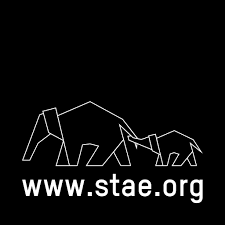
🔎
Their transparency & ratings:
Save The Asian Elephants has not yet received ratings from Charity Navigator or GuideStar. However, they have received numerous respectable accreditations from like-minded organizations.
“Working to end the terrible cruelty and brutal conditions suffered by this wondrous and ancient species.”
Save The Asian Elephants
⚒️
What they do:
Save The Asian Elephants advocates for the protection of Asian elephants. They do this by informing tourists about the horrific conditions captive Asian elephants are kept in. They also formulate policies and present petitions to UK and Asian governments to improve the care and management of captive Asian elephants, including a call for a national education program to educate mahouts (elephant trainers) and owners on proper training techniques.
🚀
What they’ve achieved:
Since their founding, Save The Asian Elephants has been involved in numerous governmental petitions to improve the lives of captive Asian elephants. For example, in 2017, their petition and letter to the UK prime minister urging the abolishment of the UK ivory trade resulted in the government’s ban, known as the Ivory Act. As a result of their campaigning, more than 1.2 million people have now called for the end of the abuse and mistreatment of captive Asian elephants in the tourism trade.
✨
Ways to contribute:
You can donate directly to Save The Asian Elephants through their website. You can also support the charity by signing their petition to end the cruel treatment of elephants in India.
World Wildlife Fund For Nature Kenya: Reducing Poaching and Retaliatory Elephant Killings

🔎
Their transparency & ratings:
According to their financial report, the World Wildlife Fund For Nature Kenya spent 95% of their funding on charitable projects.
“To stop degradation of our planet’s natural environment and build a future in which humans live in harmony with nature.”
World Wildlife Fund For Nature Kenya
⚒️
What they do:
The World Wildlife Fund For Nature Kenya works to mitigate human-elephant conflict and reduce poaching of elephants through their African Elephant Conservation Action Plan. They also work with the Kenyan wildlife service to secure and expand elephant ranges and empower community rangers to reduce human-elephant conflict cases. In addition, the charity runs numerous campaigns to keep Kenya wild. For example, their Keep Kenya Breathing Campaign raises awareness among local communities to restore the 10% forest cover by planting and maintaining trees.
🚀
What they’ve achieved:
Since their founding, the World Wildlife Fund For Nature Kenya has conserved disappearing forests and protected some of Kenya’s most ecologically important wildlife species, including elephants. For example, in 2017 they trained and equipped 11 wildlife rangers, resulting in the prosecution of 200 suspects of illegal logging and poaching. In the same year, they also facilitated the first-ever dry season census and survey of the African elephant in Loita forest. This information will be used to formulate more effective conservation management plans for the species in the future.
✨
Ways to contribute:
You can donate directly to the World Wildlife Fund For Nature Kenya through their website. You can also support the charity by joining their Panda Family to become a changemaker. You will receive exclusive access to digital content, events, and biweekly webinars with conservation experts on elephant and wildlife conservation.
How Can You Select the Best Charities to Support?
The charities on the list are, we deem, the best charities for helping elephants. However, you may have a particular charity you want to support. Let’s look at what you can do to ensure your contribution has the most significant impact.
- Check out the charity website. Charities that are worthy of your donations are transparent in their mission and their figures. Familiarize yourself with their history, mission, and values. Their website usually is the best place to start.
- Identify the charity’s mission. Without a goal, the charity is likely to fail. If the charity’s mission isn’t clear, it’s probably worth looking for a charity that does have a clear mission.
- Check if the charity has measurable goals. An effective charity has clear goals. You want to know your donation will help the charity reach its goals. But if it doesn’t have targets, it’s likely to fail or squander your gift. The charity should be able to account for its spending and supply evidence of the work they do.
- Assess the successes or goals the charity has achieved. You wouldn’t invest in a business if it kept missing its targets. In the same way, charities are like this too. If no one is assessing the progress a charity makes in reaching its targets, the chances are not making positive change.
- Check the charity’s financials and stats. Trustworthy organizations will publish financial statements and reports each year. Some might be exempt from having to do so, but they should be able to provide them to public members who are interested in donating.
- Locate sources who work with or benefit from the charity. Word of mouth and first-hand experience of a charity’s work lets you know the charity’s quality. If you’re able to do so, check out the charity for yourself or speak to someone familiar with it. This way, your donation will go to the right place.
How Can You Best Support These Charities?
After you’ve made your decision, it’s time for you to decide on how you’d like to help the charities you’ve chosen. Check how you can help – each charity runs specific programs that have unique aims. Find out what the aim of such programs is and whether they are right for you.
Here are a few ways you can help your chosen charity:
- Donate money. You can find donation pages on the website of most charities. Your donation can be a one-time payment, or you can set it to be deducted regularly at different intervals. You can mostly pay via credit card, but some charities also take PayPal or Bitcoin payments.
- Buy their official merchandise. Charities can also raise money by selling merchandise. So, you can support them by buying the mugs, shirts, caps, pens, pencils, and any other such items they may be selling. Ideally, you should buy as much as you can to share and spread the word about the charity’s activities.
- Engage in volunteer work. As you’ve seen from our descriptions above, some charities engage in a lot of local and grassroots programs. You can help by taking on and organizing the program in your local area.
- Help their fundraising efforts. You can spread the word about the charity in your workplace, school, church, etc., and hold creative fundraising drives on social media or offline within your small circles.
- Share their stories. Most charities have compelling stories that you can share with your audience to attract more people to the cause.
Final Thoughts
Whichever charity you end up choosing and contributing to, we are sure that our intelligent friends will immensely appreciate your support. It is just up to you to select the one that resonates most with you. And hopefully, the information in this article will make the selection process a bit easier for you when supporting a charity dedicated to helping elephants.
Hopefully, the information within this article will make the selection process a bit easier for you when supporting charities dedicated to helping elephants.
Stay impactful,

PS: Finally, I want to leave you with a thought-provoking TED talk from Dan Pallotta, a leading philanthropic activist and fundraiser, about what is wrong with the way we think about charities – and what we can do about it:
Sources
- Our World in Data: The state of the world’s elephant populations
- International Elephant Foundation: Home page
- Charity Navigator: International Elephant Foundation
- GuideStar: International Elephant Foundation
- International Elephant Foundation: Initiatives
- International Elephant Foundation: Projects
- International Elephant Foundation: Teachers-Kids
- International Elephant Foundation: Guinea Forest Elephants
- International Elephant Foundation: Kids activities
- International Elephant Foundation: Teacher resources
- International Elephant Foundation: Complete Husbandry Guide
- International Elephant Foundation: Donate
- International Elephant Foundation: Sponsor an elephant
- International Elephant Foundation: All the ways to help
- Save The Elephants: Home page
- Save The Elephants: Annual Report 2022
- Save The Elephants: Long term monitoring
- Save The Elephants: Science
- Save The Elephants: Elephant Crisis Fund
- Save The Elephants: Communication
- Save The Elephants: Impact
- Save The Elephants: Donate
- Save The Elephants: Help Save Elephants
- Save The Elephants: Internships
- Elephant Voices: Home page
- Charity Navigator: Elephant Voices
- GuideStar: Elephant Voices
- Elephant Voices: What we do
- Elephant Voices: Amboseli National Park
- Global Sanctuary for Elephants: Home page
- Elephant Voices: Gorongosa Elephant Project
- Elephant Voices: Donate
- Zazzle: Elephant Voices
- David Sheldrick Wildlife Trust: Home page
- Charity Navigator: David Sheldrick Wildlife Trust
- GuideStar: David Sheldrick Wildlife Trust
- David Sheldrick Wildlife Trust: Orphans Project
- David Sheldrick Wildlife Trust: Anti-Poaching
- David Sheldrick Wildlife Trust: Saving Habitats
- David Sheldrick Wildlife Trust: Veterinary Units
- David Sheldrick Wildlife Trust: Water for wildlife
- David Sheldrick Wildlife Trust: Donate
- David Sheldrick Wildlife Trust: Fundraise for us
- David Sheldrick Wildlife Trust: Adopt an Orphan
- Elephants Alive: Home page
- Elephants Alive: Annual Report 2021
- Elephants Alive: About Us
- Elephants Alive: Identifying individual elephants
- Elephants Alive: Monitoring trees and vulture nests
- Elephants Alive: Timisa lives up to her name
- Elephants Alive: Support
- The Nature Conservancy: Home page
- The Nature Conservancy: Who we are
- Charity Navigator: The Nature Conservancy
- GuideStar: The Nature Conservancy
- The Nature Conservancy: Promise for Elephants
- Honeyguide: Home page
- The Nature Conservancy: Using fireworks to save elephants in Tanzania
- The Nature Conservancy: Protecting Africa’s freshwater resources
- The Nature Conservancy: Keeping wide open spaces for elephants
- The Nature Conservancy: The Arc of the Wildebeest
- The Nature Conservancy: Annual Report 2022
- The Nature Conservancy: Donate
- The Nature Conservancy: Volunteer
- The Elephant Sanctuary in Tennessee: Home page
- Charity Navigator: The Elephant Sanctuary in Tennessee
- GuideStar: The Elephant Sanctuary in Tennessee
- The Elephant Sanctuary in Tennessee: Mission
- The Elephant Sanctuary in Tennessee: Distance Learning
- The Elephant Sanctuary in Tennessee: Elephants
- The Elephant Sanctuary in Tennessee: 2021 Annual Report
- The Elephant Sanctuary in Tennessee: 2023 Spring Campaign
- The Elephant Sanctuary in Tennessee: Gift Shop
- The Elephant Sanctuary in Tennessee: Volunteer
- The Elephant Sanctuary in Tennessee: EleCam
- Elephant Aid International: Home page
- GuideStar: Elephant Aid International
- Elephant Aid International: Mahout education
- Elephant Aid International: Our work
- Elephant Aid International: Chain free means pain free
- Elephant Aid International: Elephant foot care
- Elephant Aid International: Helping captive-held elephants heal
- Elephant Aid International: Rehabilitation of captive-held elephants
- Elephant Aid International: Elephant Refuge North America
- Elephant Aid International: Support
- Elephant Aid International: Wish List
- Elephant Aid International: Campaigns
- Save The Asian Elephants: Home page
- Save The Asian Elephants: What others say about STAE
- Save The Asian Elephants: STAE at work
- Save The Asian Elephants: Horrors for Asian Elephants
- Save The Asian Elephants: Proposals and policies
- Save The Asian Elephants: UK ivory ban
- Gov.uk: UK Ivory Act
- Save The Asian Elephants: Nearly 1.2 million back calls to end Asian elephant horror
- Save The Asian Elephants: Donate
- Change.org: Petition to end the cruel treatment of elephants in India
- World Wildlife Fund For Nature Kenya: Home page
- World Wildlife Fund For Nature Kenya: Annual Reports
- World Wildlife Fund For Nature Kenya: African Elephant Conservation
- World Wildlife Fund For Nature Kenya: Empowering community rangers
- World Wildlife Fund For Nature Kenya: Keep Kenya Breathing
- World Wildlife Fund For Nature Kenya: Boosting elephant conservation in the Mara
- World Wildlife Fund For Nature Kenya: Dry season African elephant census conducted in Loita
- World Wildlife Fund For Nature Kenya: Donate
- World Wildlife Fund For Nature Kenya: Join the Panda Family
